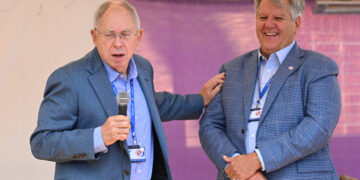By James Hastings
The science is settled. The majority of scientists disagree with you.
That was the rebuke Dr Joseph Lister, a Glasgow based surgeon and medical scientist encountered when in the late 19th century, he suggested diseases such as sepsis and cholera, were caused by infection.
The accepted view among the medical profession – a view held since it was first proposed by Hippocrates in the fourth century BC – was that infections were the result of miasma, a deadly form of bad air.
In 1873, the medical journal, The Lancet, warned the medical profession against Dr Lister’s “progressive” ideas. Despite the ridicule and derision, Dr Lister continued his research on bacteriology and antiseptic surgery and within a few years, his theory of infection was accepted by his peers. His conviction and discovery have saved literally billions of lives around the world.
The science is settled. The majority of scientists disagree with you.
That was the rebuke Fr Georges Lemaitre, a Belgian priest who was also a theoretical physicist, mathematician and astronomer, encountered in 1927 when he published a paper claiming the universe had a starting point and was expanding.
The accepted view among scientists at the time, including Einstein, was that the universe was eternal: it had always been there.
It was only when the American physicist, Edwin Hubble (he of the telescope fame) expanded on Fr. Lemaitre’s theory, that the scientific world took an interest. In 1933, at the California Institute of Technology, Fr. Lemaitre gave a talk on his findings and when he finished, Einstein stood and applauded. The scientific consensus was overturned and now the Big Bang Theory (Fr. Lemaitre had used the term Cosmic Egg.) is accepted as the origin of the universe.
Both Fr Lemaitre and Dr Lister were devout Christians who challenged the accepted science of their time. How ironic, churches in Reading and Wokingham, like those across the country, have obsequiously followed the doom and gloom narrative dished out by climate scientists.
It seems every other sermon focuses on climate change, every other church fundraiser or concert is held to raise money for and awareness of the (alleged) climate catastrophe.
In Wokingham, there have just been a series of climate lectures. When the publicity blurb begins, “Climate change is an impending crisis for the world,” it doesn’t take a boffin to know this is yet another alarmist rant.
One speaker said: “We need to talk about climate change.”
Too often those seemingly caring words actually translate as: “The science is settled. The majority of scientists disagree with you.”
As Fr Lemaitre and Dr Lister recognised, there is no such thing as “the science” nor did either care a jot that their peers disagreed with them.
Remember, climate scientists, like scientists during the covid pandemic, do not operate with hard facts. Rather, they make claims based on computer models whose predictions drive the IPCC’s guidelines and these in turn form political policy.
It is only now that the covid computer models which predicted deaths on an armageddon scale, halted education for our children and ruined the economy, are being questioned.
But is it true that the majority of climate scientists agree with the accepted model? Climate alarmists will jeer – “name some respected scientists who don’t agree.”
Firstly, too many scientists refuse to speak up for fear of being cancelled or blocked from research grant applications. Others such as the late Freeman Dyson, Stephen Meyer, former Apollo17 astronaut and scientist, Harrison Schmitt or Danish scientist, Bjorn Lomborg have warned that climate computer models are unreliable. Inevitably, these scientists are dismissed as “fringe” as Fr Lemaitre and Dr Lister were in their time.
We should be more afraid of approved climate scientists and climate science models, than of climate change itself.













































